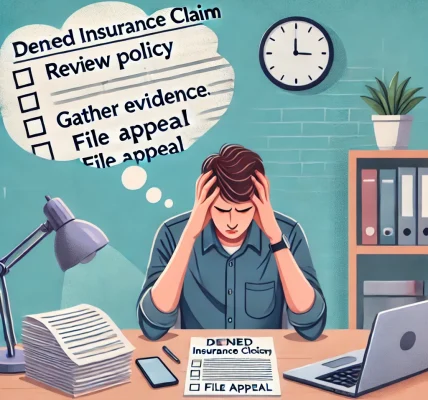Filing an insurance claim can often feel overwhelming, especially if you are unsure about the documentation required. A well-prepared claim with the right documents can significantly speed up the settlement process and reduce the chances of rejection. This guide will walk you through the essential documents you need for a hassle-free insurance claim process.
1. Why Proper Documentation is Crucial
Submitting a claim without the necessary paperwork can lead to delays, disputes, or even denials. Insurance companies require proper documentation to:
- Verify the authenticity of the claim
- Assess the extent of damage or loss
- Determine the compensation amount
- Prevent fraudulent claims
By organizing the required documents beforehand, you can ensure a smoother and quicker claim approval process.
2. General Documents Required for All Insurance Claims
Regardless of the type of insurance claim, some standard documents are universally required:
- Claim Form: Official form provided by the insurer to initiate the claim.
- Policy Document: A copy of your insurance policy to verify coverage.
- Identity Proof: Government-issued ID (e.g., passport, driver’s license, or Aadhaar card).
- Address Proof: Utility bills, rental agreement, or bank statement.
- Bank Account Details: A canceled cheque or bank statement for direct settlement transfer.
- Photographs & Videos: Visual evidence of damage or loss to support the claim.
- FIR or Police Report (if applicable): In case of theft, accidents, or criminal activity.
3. Documents Required for Specific Insurance Claims
Different types of insurance require additional documents tailored to the nature of the claim.
A. Health Insurance Claims
When claiming health insurance benefits, ensure you have:
- Medical Bills & Receipts: Invoices for hospitalization, medicines, and treatments.
- Doctor’s Prescription: For recommended treatments and medicines.
- Hospital Discharge Summary: Proof of hospitalization and treatment.
- Diagnostic Reports: Test results like X-rays, MRIs, or blood reports.
- Claim Intimation Letter: Notification sent to the insurer about the hospitalization.
B. Motor Insurance Claims
For claims related to vehicle damage, theft, or accidents, provide:
- Driving License & Vehicle Registration Certificate (RC): Proof of ownership and authorized driving.
- Insurance Policy Copy: To confirm coverage details.
- Accident Photos: Images of vehicle damage and accident location.
- FIR (in case of theft or major accidents): Report filed with the police.
- Garage Repair Bills & Estimates: Cost of repairs and assessment reports.
C. Home Insurance Claims
For property damage due to fire, flood, or other disasters, submit:
- Proof of Ownership: Property purchase agreement, deed, or lease.
- List of Damaged Items: Inventory of destroyed belongings with values.
- Repair Estimates & Bills: Quotes from contractors or repair services.
- Fire Department Report (if applicable): In case of fire-related damage.
- Weather Reports (for natural disasters): To establish the cause of damage.
D. Life Insurance Claims
For life insurance payouts to beneficiaries, the following documents are necessary:
- Original Policy Document: Proof of insured sum and policyholder details.
- Death Certificate: Official proof of the policyholder’s death.
- Nominee’s Identity & Address Proof: To verify beneficiary details.
- Hospital or Post-Mortem Reports (if applicable): To validate the cause of death.
- Bank Details of the Nominee: For fund transfer purposes.
- FIR (in case of unnatural death): Required if death is due to an accident or crime.
4. Tips to Ensure a Smooth Insurance Claim Process
To make your claim hassle-free, follow these best practices:
- Read Your Policy Carefully: Understand inclusions, exclusions, and claim limits.
- Keep Copies of Documents: Maintain both physical and digital copies for future reference.
- Report Claims Promptly: Delayed filing can lead to rejection or reduced compensation.
- Follow Up Regularly: Stay in touch with the insurer for claim status updates.
- Seek Professional Help if Needed: A financial advisor or insurance agent can guide you.
5. Conclusion
A well-documented insurance claim increases your chances of quick approval and full compensation. Organizing the required documents beforehand will help you avoid unnecessary delays and ensure a hassle-free claim settlement. If you are unsure about any aspect of your claim, consult your insurance provider for guidance.



